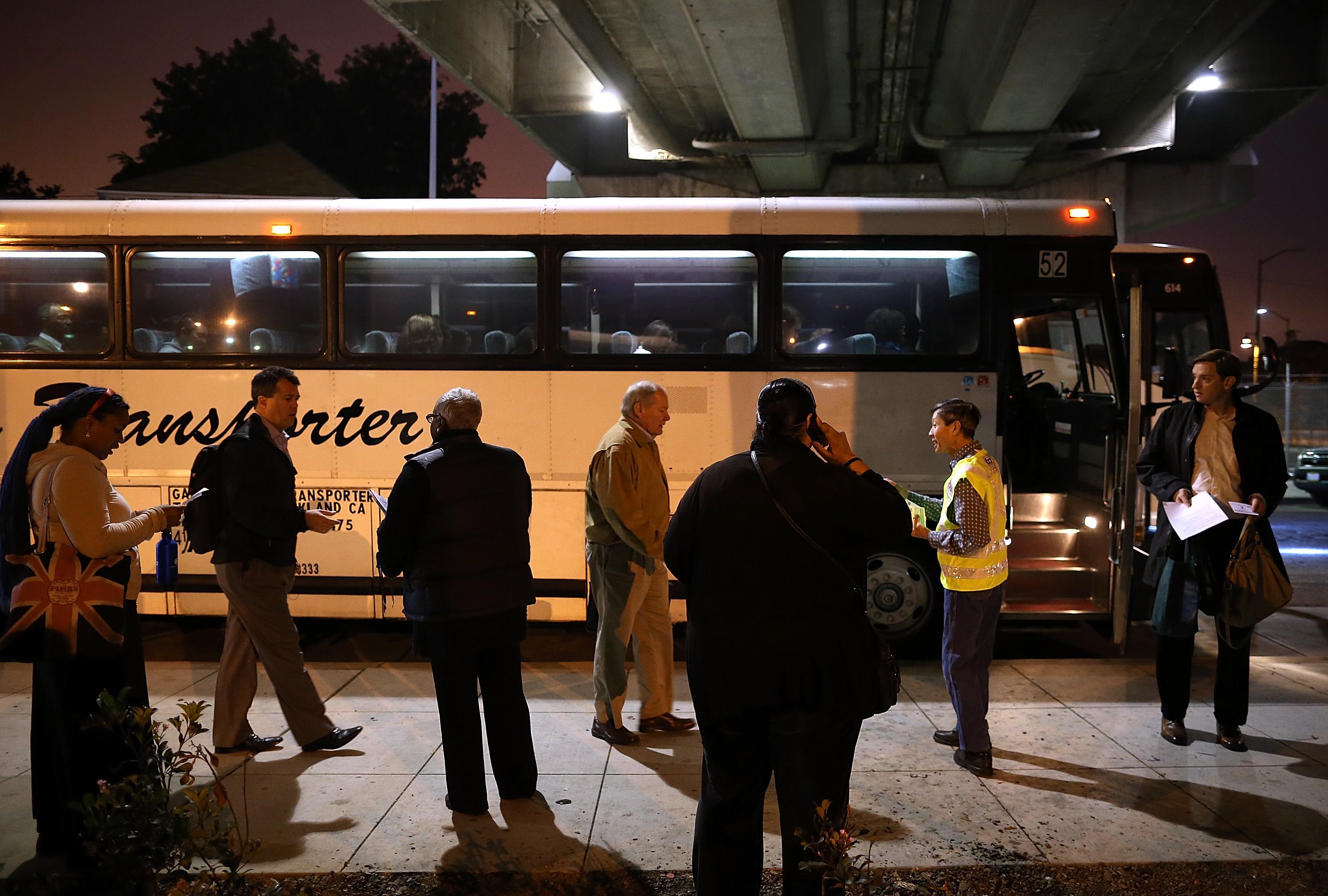As Kevin Roose says, the thing that makes the Google Bus issue in San Francisco so impossible to resolve is that the tensions aren’t about buses at all. But while the SFMTA is empowered to raise the fees that it charges tech companies for the use of bus stops, it’s not empowered to do anything about gentrification or income inequality or anything else that people are interested in.
But in terms of yesterday’s post about bus lanes, I think it would be interesting to pretend for a minute that this really is a dispute about transportation policy. Within that frame, what’s so bizarre about it is that the dispute is so narrow. Basically the issue is framed as corporate buses versus private buses versus perhaps some hypothetical new investment in rail infrastructure. Nothing is said about the private cars in which 34 percent of San Fransciso residents (PDF) get to work. That’s a lot of people. But it’s only a minority of people. And when I visited San Francisco, it seemed to me that the city—like every American city—was dedicating the majority of its road space to private cars. Getting more money out of the tech companies may help San Francisco’s transit a little. But money can’t buy me love and it can’t buy a mass transit agency space in the crowded core of a city.
To do that, you have to take lanes away from private cars. But here’s the big problem with transit policy in cities all across America. Options are constrained to things that can be done without annoying drivers. Which is to say you’re mostly doing nothing, with a side order of daydreaming about very expensive infrastructure projects. In San Francisco, you’re trying to get Google to cough up some money. But what if transit advocates and tech companies teamed up to secure more bus lanes, with the lanes open (for a fee!) to private buses as well as public ones? Then you’d have a win for local public transit and you’d have a win for firms located out of the feasible range of San Francisco transit.
Like any initiative that’s actually focused on the bus issue this would totally ignore the really big questions about zoning in San Francisco and the valley, taxes, income inequality, etc. But that’s because there’s only so much that transportation policy can actually achieve. What it can achieve, ideally, is better transportation. And the way to get there would be focusing on buses versus cars rather than an intra-bus struggle for the scraps.
